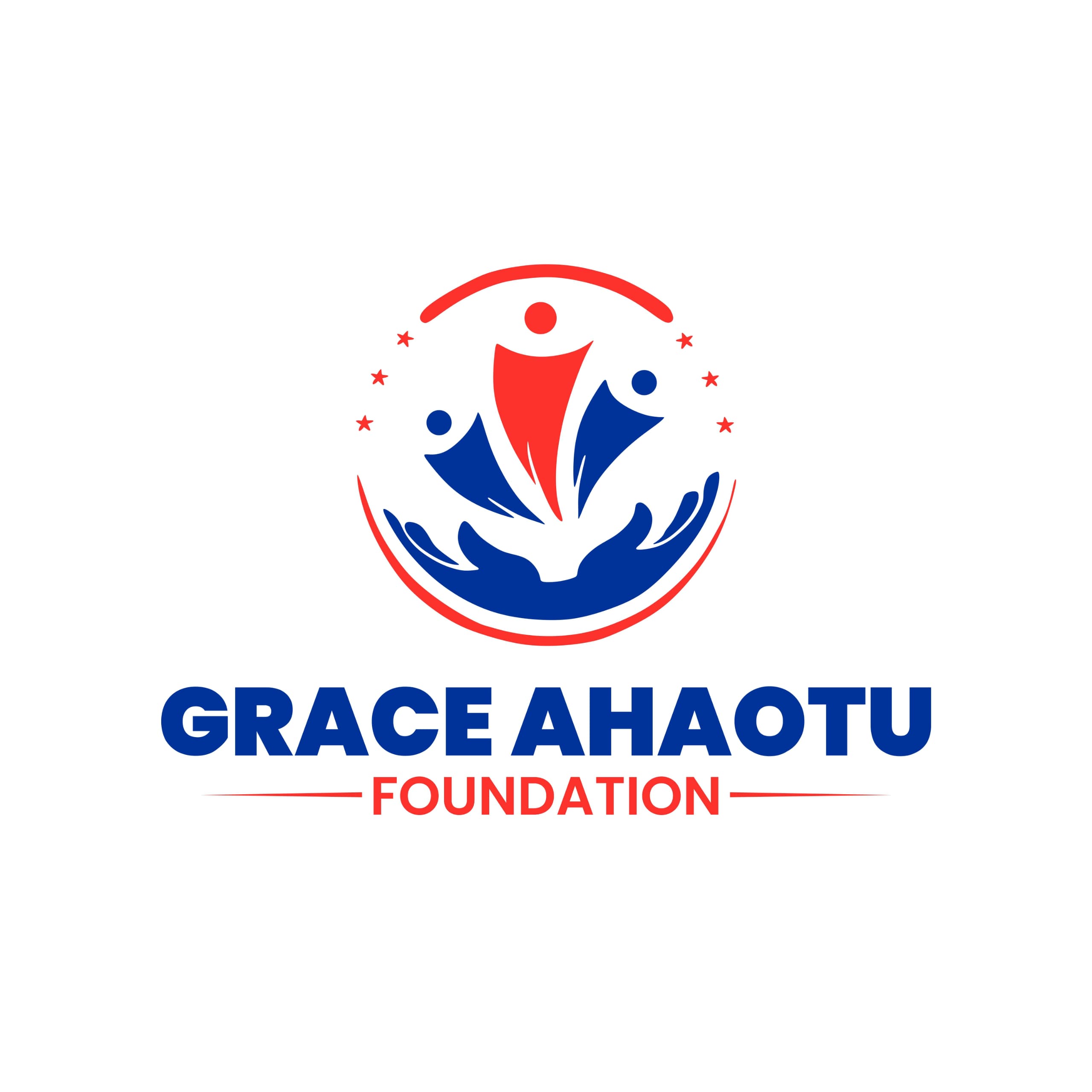Are you prepared for the most significant tax overhaul Nigeria has seen in over 25 years? On June 26, 2025, President Bola Ahmed Tinubu signed four landmark tax reform bills into law, and these changes will officially take effect on Nigeria tax reform January 1 2026. This comprehensive reform introduces the Nigerian Tax Act 2026 changes that will fundamentally reshape how individuals and businesses pay taxes in Nigeria. The new legislation includes critical updates to the minimum effective tax rate Nigeria reform, ensuring that large corporations and multinational entities pay their fair share. Perhaps most significantly for everyday Nigerians, the personal income tax reform Nigeria 2026 introduces progressive tax bands that will exempt millions of low-income earners from paying taxes altogether while providing relief to middle-income earners. The personal income tax (PIT) structure has been completely overhauled to reflect Nigeria’s current economic realities.
If you’re wondering how these changes will affect your business, your salary, or your tax obligations, you’re not alone. Thousands of Nigerian businesses and individuals are scrambling to understand the implications of the Nigeria tax reform January 1 2026. This is where Rexobe Consult comes inwe’re here to help you navigate these complex changes with confidence.
Nigeria Tax Reform January 1 2026: What’s Changing and Why
The Nigeria tax reform January 1 2026 represents a complete restructuring of the country’s fiscal framework. This reform consolidates multiple existing tax laws including the Companies Income Tax Act, Personal Income Tax Act, Value Added Tax Act, Capital Gains Tax Act, and Petroleum Profits Tax Act into a single, unified statute known as the Nigeria Tax Act 2025.
Why This Reform Matters to You
The Nigeria tax reform January 1 2026 was designed to address several critical challenges that have plagued Nigeria’s tax system for decades:
- Simplification: The previous system had over a dozen separate federal tax laws, creating confusion and duplication. The new unified framework eliminates ambiguity and reduces compliance burdens.
- Fairness: Low-income earners have been disproportionately burdened by taxes. The Nigeria tax reform January 1 2026 shifts this burden toward high-income earners and large corporations.
- Economic Growth: By reducing taxes on small businesses and middle-income earners, the reform aims to stimulate consumer spending and business growth.
- Global Alignment: The reforms align Nigeria with international tax standards, making the country more attractive to foreign investors.
Key Components of the Reform Package
The Nigeria tax reform January 1 2026 comprises four landmark laws:
- Nigeria Tax Act (NTA): Consolidates all major tax legislation into one comprehensive law
- Nigeria Tax Administration Act (NTAA): Establishes unified procedures for tax administration
- Nigeria Revenue Service (Establishment) Act (NRSA): Transforms the Federal Inland Revenue Service (FIRS) into the Nigeria Revenue Service (NRS) with expanded powers
- Joint Revenue Board (Establishment) Act (JRBA): Creates coordination mechanisms between federal, state, and local tax authorities
Are you confused about how the Nigeria tax reform January 1 2026 affects your specific situation? Rexobe Consult specializes in helping businesses and individuals understand and prepare for these changes. Our tax experts can conduct a comprehensive review of your current tax position and develop a compliance strategy tailored to your needs.
Only <45 Days Until January 1, 2026!
Don’t let the Nigeria tax reform catch your business unprepared.
Click Here to Schedule Your Consultation Today
Nigerian Tax Act 2026 Changes: A Complete Breakdown
The Nigerian Tax Act 2026 changes introduce sweeping modifications across every aspect of taxation in Nigeria. Understanding these changes is crucial for maintaining compliance and optimizing your tax position.
Read Also: How to Avoid Paying More Tax in 2026: 2026 Tax Reform in Nigeria
Major Corporate Tax Changes
The Nigerian Tax Act 2026 changes significantly and impact how businesses operate:
1. Small Business Relief Small companies with annual turnover of ₦100 million or less and total fixed assets not exceeding ₦250 million are now completely exempt from:
- Companies Income Tax (CIT)
- Witholding Tax
- Value Added Tax (VAT)
- Development Levy
This represents a dramatic increase from the previous threshold of ₦25 million, providing substantial relief to small and medium enterprises (SMEs).
2. Development Levy Introduction The Nigerian Tax Act 2026 changes introduce a new 4% Development Levy on assessable profits for companies that don’t qualify as small businesses. This levy consolidates several previous levies including:
- Tertiary Education Tax (TET)
- National Information Technology Development Levy (NITDL)
- NASENI Levy (National Agency for Science and Engineering Infrastructure)
- Police Trust Fund Levy
3. Capital Gains Tax Increase Capital Gains Tax for companies has increased from 10% to 30%, aligning with the corporate income tax rate. However, the Nigerian Tax Act 2026 changes also provide exemptions for:
- Share sales below ₦150 million in any 12-month period (with gains capped at ₦10 million)
- Principal residence sales
- Reinvested capital gains
VAT and Digital Tax Changes
The Nigerian Tax Act 2026 changes revolutionize Value Added Tax administration:
- Essential items exempted: Food items, medical equipment, pharmaceuticals, tuition fees, electricity, and educational materials are now zero-rated (Can now claim input VAT)
- E-invoicing mandatory: All VAT-registered businesses must implement electronic invoicing systems championed by NRS integretion has fully begun with large companies.
- Input VAT recovery: Businesses can now recover VAT on capital expenditure and services
- Fiscalization requirements: Real-time transaction monitoring will be implemented
Free Zone and Export Incentives
The Nigerian Tax Act 2026 changes maintain tax exemptions for companies operating in free zones, but with important modifications. Exports from Nigeria are now exempt from income tax, provided proceeds are repatriated through official channels. Additionally, agricultural sector startups enjoy a five-year tax holiday to encourage food production and security.
Overwhelmed by the Nigerian Tax Act 2026 changes? You’re not alone. Rexobe Consult offers specialized compliance audits to ensure your business is fully prepared for January 1, 2026. We’ll review your current tax structure, identify areas of risk, and implement systems to ensure seamless compliance with all the Nigerian Tax Act 2026 changes.
Minimum Effective Tax Rate Nigeria Reform: What Large Corporations Must Know
The minimum effective tax rate Nigeria reform represents one of the most significant aspects of the new tax regime, particularly for multinational corporations and large Nigerian companies. This reform aligns Nigeria with global tax standards, specifically the OECD’s Pillar Two framework.
Who Does the Minimum Effective Tax Rate Apply To?
The minimum effective tax rate Nigeria reform introduces a 15% minimum effective tax rate (ETR) for:
- Multinational Enterprise Groups: Nigerian companies that are part of multinational groups with aggregate global turnover of €750 million or more
- Large Nigerian Companies: Companies with annual turnover of ₦50 billion or more
This means if your company falls into either category and your effective tax rate is below 15%, you must pay a top-up tax to bring your ETR to the minimum threshold. Another thing of note, is that other companies are no longer mandated to pay minimum tax as was practiced in the old law. In certified reported loss will be reported as such
How the Minimum Effective Tax Rate is Calculated
Under the minimum effective tax rate Nigeria reform, the ETR is calculated by dividing the aggregate covered tax paid by a company for a year of assessment by the profits of the company. The Act defines “profits” as:
Net profits before tax as reported in audited financial statements, less 5% of depreciation and personnel costs for the year
This differs from the traditional profit calculation and requires careful consideration during tax planning.
Key Implications for Businesses
The minimum effective tax rate Nigeria reform has several critical implications:
1. End of Minimum Tax: The previous minimum tax regime for loss-making companies has been abolished and replaced with the ETR system, which only applies to large and multinational entities.
2. Top-Up Tax for Parent Companies: Nigerian parent companies of multinational groups must pay a top-up tax if their foreign subsidiaries operate in jurisdictions where the effective tax rate is below 15%. This prevents profit shifting to low-tax jurisdictions.
3. Free Zone Exception: The minimum effective tax rate Nigeria reform does not apply to Free Zone companies on their export activities, provided they are not part of multinational groups. However, from January 1, 2028, the 25% tax exemption on exports to the customs territory will no longer apply unless extended by the President.
4. Compliance Complexity: For companies with operations across multiple streams or jurisdictions, the ETR calculation becomes significantly more complex, as Nigeria’s domestic rules may apply on an entity-by-entity basis rather than jurisdictionally.
Personal Income Tax (PIT) Under the Minimum Effective Tax Rate Framework
While the minimum effective tax rate Nigeria reform primarily targets corporate entities, it’s important to understand how personal income tax (PIT) interacts with these changes. High-income individuals who own businesses subject to the minimum effective tax rate should consider how their personal income tax (PIT) planning strategies align with their corporate tax positions.
The personal income tax (PIT) reforms work in tandem with corporate tax changes to create a more progressive and equitable tax system. For business owners, this means your personal income tax (PIT) liability and your company’s effective tax rate must both be considered in comprehensive tax planning.
Is your company subject to the minimum effective tax rate Nigeria reform? Don’t wait until January 1, 2026 to find out. Rexobe Consult provides specialized ETR compliance services, including:
- ETR calculation and projection modeling
- Tax structure optimization to legally minimize top-up tax exposure
- Systems implementation for accurate covered tax tracking
- Ongoing compliance monitoring and reporting
Contact us today to ensure your business is prepared for the minimum effective tax rate Nigeria reform.
Personal Income Tax Reform Nigeria 2026: Revolutionary Changes for Individuals
The personal income tax reform Nigeria 2026 represents the most dramatic shift in how individual Nigerians are taxed in over a decade. These changes will directly affect the take-home pay of millions of workers across the country.
The New Progressive Tax Structure
Under the personal income tax reform Nigeria 2026, a completely new progressive tax rate structure takes effect:
| Annual Income Range | Tax Rate |
|---|---|
| Up to ₦800,000 | 0% (Fully exempt) |
| ₦800,001 – ₦3,000,000 | 15% |
| ₦3,000,001 – ₦12,000,000 | 18% |
| ₦12,000,001 – ₦25,000,000 | 21% |
| ₦25,000,001 – ₦50,000,000 | 23% |
| Above ₦50,000,000 | 25% |
This represents a fundamental shift from the previous system. The personal income tax reform Nigeria 2026 completely exempts individuals earning ₦800,000 or less annually (approximately ₦66,667 monthly) from paying any income tax.
Who Benefits Most from the Personal Income Tax Reform?
According to Taiwo Oyedele, Chairman of the Presidential Fiscal Policy and Tax Reform Committee, approximately 97-98% of Nigerian workers will either pay no PAYE tax or pay significantly less under the personal income tax reform Nigeria 2026. About 33% of workers in the public and private sectors combined will be completely exempted.
For Low-Income Earners: The ₦800,000 exemption threshold means that minimum wage earners and those in entry-level positions will keep their entire salary without any tax deduction.
For Middle-Income Earners: Those earning between ₦1 million and ₦20 million annually will generally see reduced effective tax rates compared to the previous system.
For High-Income Earners: Individuals earning above ₦50 million annually will face a top rate of 25%, which is higher than previous rates but still competitive regionally.
Changes to Tax Reliefs and Allowances
The personal income tax reform Nigeria 2026 introduces significant changes to how reliefs are calculated:
1. Consolidated Relief Allowance (CRA) Abolished: The CRA has been completely eliminated and replaced with a new rent relief system.
2. New Rent Relief: Employees can now claim a deduction of 20% of annual rent paid, capped at ₦500,000. This provides more targeted relief for housing costs, which represent a significant burden for many Nigerian workers.
3. Redundancy Payment Exemption: Compensation for job loss, redundancy, or injury is now tax-exempt up to ₦50 million (increased from ₦10 million previously). This provides crucial protection during difficult economic times.
4. Personal Effects Exemption: Tax exemption on personal effects has been raised to ₦5 million.
Residence Rules and Non-Resident Taxation
The personal income tax reform Nigeria 2026 provides clearer definitions of tax residence:
Resident Individuals: Subject to tax on worldwide income. An individual is considered resident if they:
- Spend 183 days or more in Nigeria in any 12-month period
- Have substantial economic ties in Nigeria
- Have immediate family residing in Nigeria
Non-Resident Individuals: Taxed only on Nigeria-sourced income such as local salaries, rent, dividends, and business income earned in Nigeria.
This clarity helps international assignees, expatriates, and Nigerians working abroad understand their tax obligations.
Impact on Salary Earners
Starting January 2026, when you receive your salary at the end of the month, you’ll immediately feel the impact of the personal income tax reform Nigeria 2026. For the vast majority of Nigerian workers, this means more money in your pocket.
Example Calculation:
- Before Reform: Someone earning ₦5 million annually might have paid approximately ₦750,000 in tax
- After Reform: The same person will pay approximately ₦650,000-₦700,000 in tax, saving ₦50,000-₦100,000 annually
Confused about how the personal income tax reform Nigeria 2026 affects your specific salary? Rexobe Consult offers personal tax planning services for individuals at all income levels. We’ll:
- Calculate your exact tax liability under the new system
- Identify all available reliefs and deductions
- Optimize your tax withholding to avoid overpayment
- Ensure your employer is applying the correct PAYE rates
Don’t leave money on the table. Contact Rexobe Consult today to maximize your take-home pay under the personal income tax reform Nigeria 2026.
How to Prepare for the January 1, 2026 Implementation
With the Nigeria tax reform January 1 2026 rapidly approaching, preparation is critical. Here’s what you need to do now:
For Businesses
1. System Updates
- Implement e-invoicing systems compliant with the Nigerian Tax Act 2026 changes
- Update accounting software to handle new tax rates and calculations
- Establish fiscalization capabilities for real-time VAT reporting
2. Compliance Review
- Determine if your business qualifies as a small company under the new thresholds
- Calculate your potential effective tax rate under the minimum effective tax rate Nigeria reform
- Review all tax incentives and exemptions you currently claim
3. Staff Training
- Educate your finance team on all Nigerian Tax Act 2026 changes
- Update payroll systems to reflect personal income tax reform Nigeria 2026 rates
- Train relevant staff on new compliance requirements
4. Documentation
- Organize all financial records to support tax positions
- Ensure audit-ready documentation for all transactions
- Maintain proper records for input VAT recovery claims
For Individuals
1. Verify Your Tax Status
- Ensure you have a valid Tax Identification Number (TIN)
- Confirm your employer has updated PAYE tables for the personal income tax reform Nigeria 2026
- Review your salary structure and allowances
2. Understand Your Liability
- Calculate your expected tax under the new progressive rates
- Identify all reliefs you’re entitled to claim
- Keep records of rent payments to claim the new rent relief
3. Plan for Changes
- Adjust your budget based on your new take-home pay
- Consider additional savings with tax reductions
- Review investment strategies in light of new capital gains tax rates
For Multinational Companies
1. ETR Compliance
- Conduct detailed analysis to determine if you’re subject to the minimum effective tax rate Nigeria reform
- Model various scenarios to project top-up tax exposure
- Review global tax structure to optimize effective tax rates across all jurisdictions
2. Transfer Pricing
- Update transfer pricing documentation to reflect new rules
- Ensure all related-party transactions can withstand increased scrutiny
- Consider implications of controlled foreign company provisions
3. Technology Infrastructure
- Implement systems capable of tracking covered taxes for ETR calculations
- Ensure data integration across all Nigerian entities
- Establish reporting capabilities for complex compliance requirements
Common Questions and Challenges
“I don’t know if my business qualifies as a small company under the new rules”
This is one of the most common concerns we hear at Rexobe Consult. The Nigerian Tax Act 2026 changes define small companies as those with:
- Annual turnover of ₦100 million or less, AND
- Total fixed assets not exceeding ₦250 million
Both conditions must be met to qualify for the exemptions. Our team can review your financials and provide a definitive answer.
“How do I implement e-invoicing systems required by the reform?”
E-invoicing is mandatory for all VAT-registered businesses under the Nigerian Tax Act 2026 changes. This involves:
- Selecting approved e-invoicing software
- Integrating it with your existing accounting systems
- Training staff on proper usage
- Ensuring real-time data transmission to tax authorities
Rexobe Consult partners with leading e-invoicing providers and can handle the entire implementation process for you.
“Will the personal income tax reform really reduce my tax burden?”
For 97-98% of Nigerian workers, yes. The personal income tax reform Nigeria 2026 was specifically designed to reduce the tax burden on low and middle-income earners. However, your specific situation depends on your income level, allowances, and reliefs. A personalized tax calculation is the only way to know for certain.
“What happens if I don’t comply with the new rules?”
The Nigerian Tax Act 2026 changes include significantly increased penalties for non-compliance. These can include:
- Monetary fines up to 300% of the tax underpaid
- Interest charges on late payments
- Criminal prosecution in severe cases
- Reputational damage that can affect business operations
Early preparation and professional guidance are essential to avoid these consequences.
Why Choose Rexobe Consult for Your Tax Reform Needs?
At Rexobe Consult, we understand that the Nigeria tax reform January 1 2026 represents both challenges and opportunities. Our team of experienced tax professionals has been closely monitoring the development and passage of these reforms, and we’re uniquely positioned to help you navigate the changes successfully.
Our Comprehensive Services Include:
Tax Compliance Audit
- Complete review of your current tax position
- Gap analysis identifying areas of non-compliance risk
- Detailed roadmap for achieving full compliance with the Nigerian Tax Act 2026 changes
ETR Optimization Services
- Calculation of your current and projected effective tax rate
- Scenario modeling for the minimum effective tax rate Nigeria reform
- Strategic planning to legally minimize top-up tax exposure
Personal Tax Planning
- Individual tax calculations under the personal income tax reform Nigeria 2026
- Optimization of allowances and reliefs
- PAYE compliance verification for employers
E-Invoicing Implementation
- System selection and procurement
- Integration with existing accounting software
- Staff training and ongoing support
Ongoing Compliance Support
- Regular monitoring of regulatory changes
- Quarterly compliance reviews
- Annual tax return preparation and filing
Why Businesses Trust Rexobe Consult
- Expertise: Our team includes chartered accountants and tax specialists with deep knowledge of Nigerian tax law
- Proactive Approach: We don’t just react to problems we help you anticipate and prevent them
- Customized Solutions: Every client receives strategies tailored to their specific situation
- Proven Track Record: We’ve helped hundreds of Nigerian businesses optimize their tax positions
- Accessible: We’re always available to answer questions and provide guidance
Take Action Today: Don’t Wait Until January 1, 2026
The Nigeria tax reform January 1 2026 is less than two months away. Every day you wait is a day you could be preparing, optimizing, and positioning yourself for success under the new regime.
The Nigerian Tax Act 2026 changes, the minimum effective tax rate Nigeria reform, and the personal income tax reform Nigeria 2026 will affect every aspect of how you do business and manage your finances in Nigeria. Whether you’re a multinational corporation, a growing SME, or an individual taxpayer, professional guidance is essential.
Click Here to Schedule Your Consultation Today
Rexobe Consult is offering tax reform consultation sessions for clients. During this consultation, we’ll:
- Review your current situation
- Identify your specific areas of concern
- Provide preliminary recommendations
- Outline how we can help you achieve full compliance and optimization
Don’t leave your tax compliance to chance. Contact Rexobe Consult now:
Office Address
B3 suite 13 FF, Abisco Lane, Rauf Aregbesola Shopping Complex,
Ipaja Road, Lagos State
Website: https://rexobeconsult.com/
WhatsApp: https://wa.me/2348063830956
Instagram: https://www.instagram.com/rexobeconsult
Final Thoughts
The Nigeria tax reform January 1 2026 represents a watershed moment in Nigeria’s fiscal history. The Nigerian Tax Act 2026 changes will create a simpler, fairer, and more efficient tax system. The minimum effective tax rate Nigeria reform ensures large corporations contribute their fair share. And the personal income tax reform Nigeria 2026 will put more money back in the pockets of millions of Nigerian workers.
But these benefits only materialize if you’re prepared. Whether you need help understanding how the personal income tax (PIT) changes affect your salary, ensuring your business complies with the minimum effective tax rate Nigeria reform, or navigating the dozens of other provisions in the Nigerian Tax Act 2026 changes, Rexobe Consult is here to help.
The time to act is now. Don’t let the Nigeria tax reform January 1 2026 catch you unprepared. Contact Rexobe Consult today and take control of your tax future.











